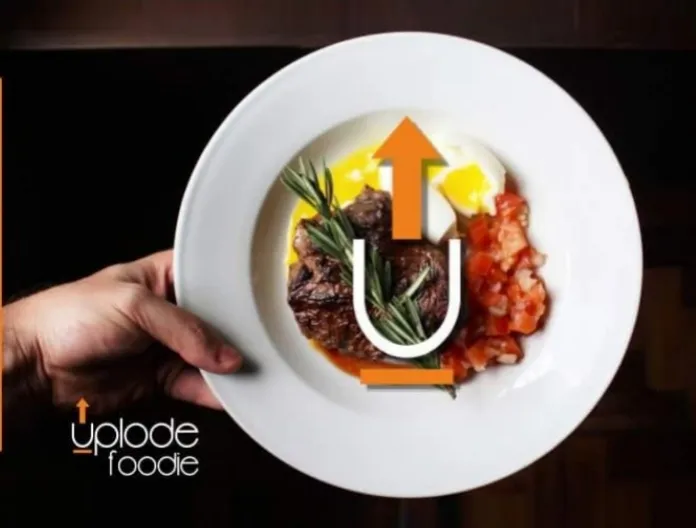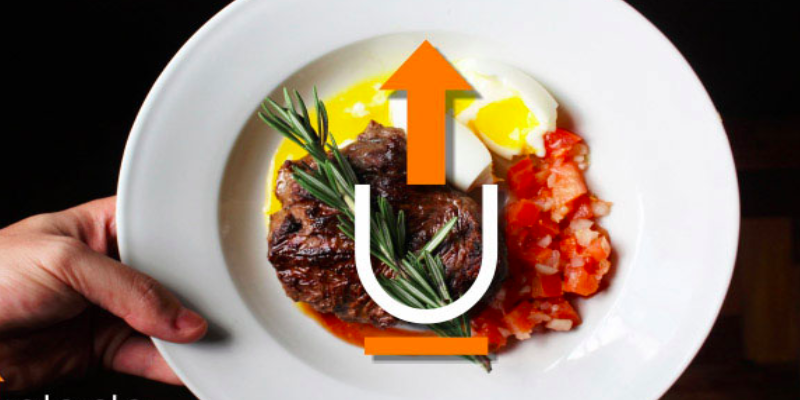How SaaS startup Uplodefoodie plans to fix the gaps in the restaurant industry’s backend
While food discovery and ordering has been simplified by a host of apps, restaurant owners are still looking for a 360-degree tech solution to manage the backend. Here, this Pune-based startup steps in.
At a glance
Startup: Uplodefoodie
Founders: Yogesh Ghorpade, Payal Ghorpade
Founded in: 2013
Based out of: Pune
Services: SaaS solution for the food-service industry that helps manage, track, analyse, and optimise operations
Sector: Food tech
Funding raised: Bootstrapped
Food tech is a buzzword in the Indian startup ecosystem. While 2016 was, what many call, a “graveyard” for the sector with funding drying up and startups shutting down, the last one year has seen the resurgence of the category. Both pure-play cloud kitchen providers, as well as food marketplaces and aggregators are finding their feet again.
But, the focus still rests firmly on B2C, with only a handful of B2B food startups making waves. It is an opportunity waiting to be tapped, and industry observers believe the services side of the food industry - hotels, restaurants and the thousands of unorganised eating joints - can be reformed with technology solutions.
Or so discovered the founders of Uplodefoodie, a Pune-based startup which originated as a concept back in 2013. The husband-wife duo of Yogesh and Payal Ghorpade identified a gap between a restaurant’s backend and its customer-facing operations, and started to build a product that could bridge it.

Origins
Yogesh, a veteran in the IT/IT services industry with over two decades of experience, and Payal, who had worked for 12 years in creative and business development, realised that while restaurant discovery and food ordering grew simpler by the day, the management of orders, dine-ins, customer footfall, payments, sales, and HR operations across multiple restaurant outlets were “chaotic” and unorganised.
They built a software solution that could make the end-to-end restaurant and outlet management process much simpler, and help food service players optimise their costs to a large extent.
Five years after it started up in Pune, Uplodefoodie was registered as a company early this year. It has piloted a project with 20 of Pune’s leading restaurants, and will soon be operational in about 50 places in Maharashtra. Pan-India expansion by the end of 2018 is the near-term target.
Founder-CEO Yogesh tells YourStory,
“We surveyed restaurants and arrived at a long list of issues they were facing at the backend. There was no 360-degree solution for performance monitoring, hotel and staff management, tracking of customer footfalls, billing and so on. Restaurants were employing multi-vendor solutions for each task and that created a lot of chaos. Sometimes it even hampered the brand. We wanted to fix these issues.”
The product
It took 11-12 months for the Uplodefoodie product to reach its current shape. The white label SaaS solution has three core components: a CRM software that takes care of business development and customer loyalty programmes, a material management solution that helps organise and control the flow of materials and resources across multiple outlets, and an order-taking app that allows restaurants to track customer behaviour, order history, footfalls and repeat visits, billings etc.
Yogesh explains,
“Because it is a white label solution, we retrofit with the restaurant operation. We realised that restaurant owners prefer a personalised solution over the aggregation model.”
In addition to the B2B2C solution for restaurants, Uplodefoodie also runs a consumer-facing app that notifies patrons of deals, offers, loyalty programmes, and even sends them birthday greetings and anniversary cards!
This application is aimed at personalising the restaurant experience for each customer. A data engine tracks their behaviour, and shares those insights with restaurants to help them improve customer retention and increase repeat visitors.

Clients and business model
Uplodefoodie’s current clientele includes quick service restaurant (QSR) chains, large corporate groups, standalone fine dine restaurants as well as hundreds of pick-up counters and unorganised eating joints. Its order-taking app has been downloaded between 100 to 200 times at each restaurant. “Downloads are higher in fine-dine places,” reveals Yogesh.
“We want to reach about 3,000 restaurants across Tier I and Tier II cities by the end of the year,” he adds.
Partner restaurants include Copa Cabana, Tareef, Kingz Biriyani, Golden Rock, Toff Hotel, Navratna, and Cheezy Bites, among others.
Uplodefoodie charges a one-time software installation fee that is tweaked depending on the restaurant. For instance, a small eating joint would be charged less for the software. In addition, there is a revenue-sharing model, and that too is flexible. “The percentage most restaurants share with us is still in single digits but if it’s a small eating joint we might charge them more, because we’d tweaked the upfront software fee,” Yogesh says.
Funding and scaling up
What is the cost of building a product like Uplodefoodie, and how does it sustain its 12-member team?
Yogesh says,
“We’ve been bootstrapped while building the product. Now, we are looking to raise money and have been in talks with investors. We are looking at $7 million; the first tranche of $2 million could be finalised next month.”
Uplodefoodie claims to have tested its product in international markets like Singapore, Dubai, Australia, Germany, and the US. Those are mature food-tech markets, and acceptance would be higher. In India, though, a $50 billion industry opportunity beckons, and Yogesh is first out to exploit that.







